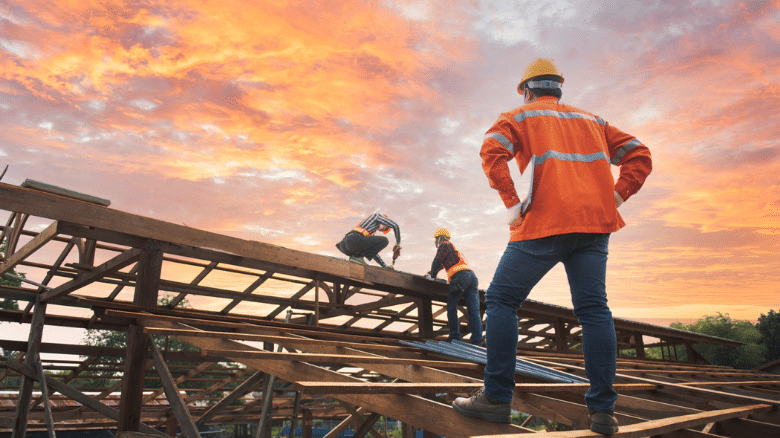Overview of Commercial Construction in Hyderabad:
Commercial construction in Hyderabad has witnessed significant growth in recent years, with a number of reputable commercial builders establishing their presence in the city. The demand for commercial constructions in Hyderabad has been driven by its booming economy and the influx of multinational corporations setting up their operations here. As a result, the need for commercial construction companies in Hyderabad has intensified, leading to increased competition in the market. These commercial builders in Hyderabad are known for their expertise, efficiency, and commitment to sustainable construction practices. With a focus on energy efficiency, waste reduction, and the use of eco-friendly materials, these companies are contributing to the sustainability of commercial constructions in Hyderabad.
Benefits of Sustainable Commercial Construction:
When it comes to commercial constructions in Hyderabad, sustainability is becoming an increasingly important consideration. By embracing sustainable practices, commercial construction projects can reap a multitude of benefits. Firstly, sustainable construction can significantly reduce environmental impact by using eco-friendly materials and implementing energy-efficient designs. This not only helps in preserving the natural resources of Hyderabad but also contributes to mitigating climate change. Furthermore, sustainable commercial buildings are known to provide healthier indoor environments for occupants, thanks to improved air quality and natural lighting. Additionally, the integration of sustainable technologies such as solar panels can lead to significant cost savings on energy bills in the long run. By prioritizing sustainability in commercial construction, businesses in Hyderabad can create a positive impact on both the environment and their bottom line.
Strategies for Achieving Sustainability in Commercial Construction:
When it comes to commercial construction, sustainability is a top priority. With increasing concerns about environmental impact and the need to reduce carbon emissions, businesses are looking for strategies to make their buildings more sustainable. There are several key strategies that can help achieve sustainability in commercial construction. One important aspect is the use of eco-friendly materials, such as recycled steel and sustainable wood, which not only reduce waste but also contribute to a healthier indoor environment. Another strategy is the implementation of energy-efficient systems, including smart lighting and HVAC systems, which can significantly reduce energy consumption and operational costs. Additionally, designing buildings with ample natural lighting and ventilation can minimize the need for artificial lighting and cooling, further reducing the overall carbon footprint. By adopting these strategies and taking a holistic approach to sustainability, commercial construction can make a positive impact on the environment while also benefiting businesses in the long run.
Importance of Energy Efficiency in Commercial Construction:
When it comes to sustainability in commercial construction, one of the most important aspects to consider is energy efficiency. In a world where resources are becoming increasingly scarce, it is crucial to find ways to reduce our carbon footprint and lower our energy consumption. Energy efficiency not only benefits the environment but also helps businesses save money on their utility bills. By using energy-efficient materials and technologies, such as insulation, LED lighting, and smart systems, commercial buildings can significantly reduce their energy consumption and contribute to a more sustainable future.
Incorporating Renewable Energy Sources in Commercial Construction:
With the increasing awareness of the need to combat climate change, sustainability has become a crucial element in the construction industry. One significant way to enhance sustainability in commercial construction is by incorporating renewable energy sources. By harnessing the power of the sun, wind, and water, businesses can reduce their carbon footprint and decrease their reliance on fossil fuels. Installing solar panels on rooftops, utilizing wind turbines, and implementing hydroelectric systems are just a few examples of how renewable energy can be integrated into commercial buildings. Not only does this promote a cleaner and greener environment, but it also provides long-term cost savings by reducing energy bills. Moreover, embracing renewable energy sources in commercial construction sets a positive example for other industries and for the wider community, making sustainability a top priority for a better future.
Sustainable Material Selection in Commercial Construction:
When it comes to creating eco-friendly and sustainable commercial buildings, one of the key factors to consider is the selection of materials. The materials used in the construction process can have a significant impact on the overall sustainability of the building. By choosing sustainable materials, such as recycled or low-impact materials, builders can reduce their carbon footprint and contribute to a greener future. Not only do these materials have a lower environmental impact, but they also possess durability and longevity, ensuring that the building stands the test of time. So, whether it's opting for reclaimed wood or using energy-efficient insulation, sustainable material selection is a crucial aspect of commercial construction that should not be overlooked. Let's delve deeper into the benefits and considerations of sustainable material selection in commercial construction.
Promoting Water Conservation in Commercial Construction:
When it comes to sustainability in commercial construction, one crucial aspect that cannot be overlooked is water conservation. With rising concerns over water scarcity and the need to reduce our environmental impact, incorporating water-saving measures into commercial construction projects has become imperative. From designing efficient plumbing systems to using water-efficient fixtures and implementing rainwater harvesting techniques, there are various ways to promote water conservation in this industry. Not only does this benefit the environment by reducing water consumption, but it also presents an opportunity for businesses to save on costs in the long term. By prioritizing water conservation in commercial construction, we can contribute towards a greener and more sustainable future.

